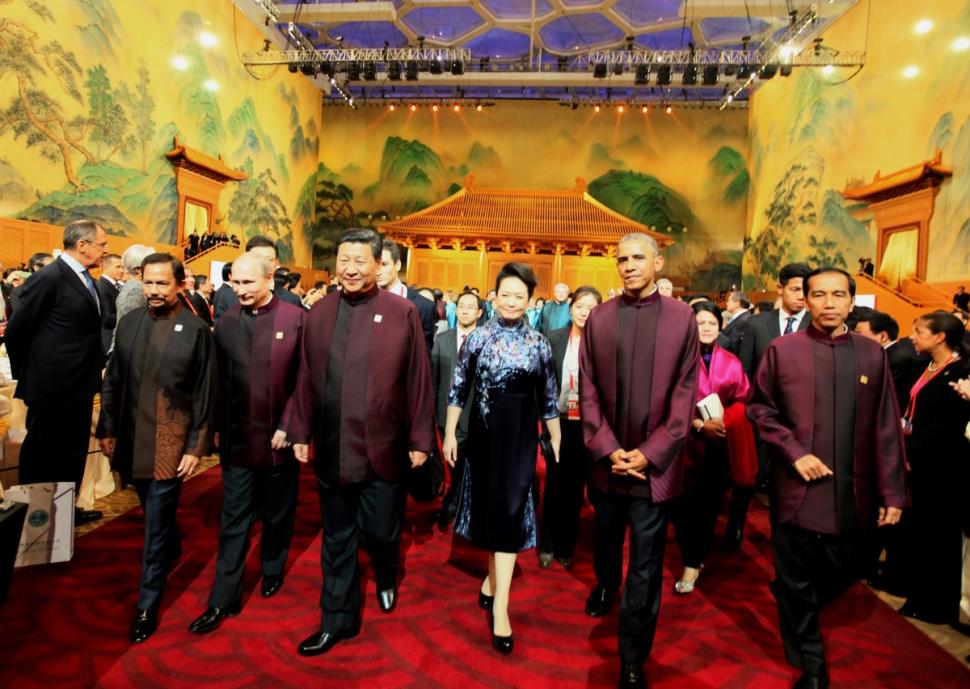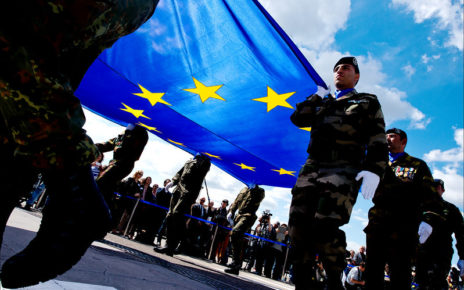
The 2014 Asia-Pacific Economic Cooperation (APEC) Summit took place in Beijing between 10-12 November. Environmental and geopolitical issues, both regional and global, were discussed over the course of 48 hours, and agreements were reached, some of them exceeding expectations. In addition to reaching an agreement on gas emission with U.S. President Barack Obama, Chinese President Xi Jinping met with Japanese Prime Minister Shinzo Abe for the first time since both of them took office over two year ago. Xi and Abe even sat down face to face for a 30-minute bilateral talk facilitated by a joint communiqué released earlier, stating that the two sides “agreed to disagree” and temporarily set aside their uncompromising disputes over territory and history.
Aside from the serious business, there were a number of interesting anecdotes and awkward moments during the Summit that received the attention of the world through both press and social media.
Xi and Abe’s Awkward Handshake
At a press photo-op during the Summit, Xi and Abe exchanged one of the most awkward diplomatic handshakes ever caught on camera. As they shook hands, Abe uttered only a brief word to Xi. Xi, on the other hand, not only failed to reply with a single word, but also put on a rather cold face and deliberately turned away from Abe’s gaze, creating a rather uncomfortable moment. Their face-to-face talk might have gone relatively well, but if that was the case, the handshake certainly did not reflect it. The Chinese and Japanese leaders’ facial expression and body language suggests that their handshake was more of an obligation than a pleasantry.
Putin’s Friendly Gesture towards China’s First Lady Censored
At a welcoming ceremony held on November 10 at the Water Cube in Beijing, President Putin showed the Chinese first lady a gesture that was considered overly friendly by some. It was an outdoor event held on a chilly evening. China’s first lady Peng Liyuan was sitting beside and casually chatting with Russian President Vladimir Putin while President Xi was engaging in a conversation with President Obama. At one point in their conversation, Putin stood up and placed a coat around Peng’s shoulders. Peng responded with a friendly smile but took the coat off a few second later. The entire scene was captured on China’s state-run TV channel and broadcasted to the entire world. The video clip circulated widely on the Internet and sparked great interest among online viewers before being censored by the Chinese government and taken off social media. The motivation behind the censorship of this seemingly rather insignificant episode is not entirely clear. Some attributed this censorship to China’s goal of maintaining a “squeaky-clean image” as the Summit’s host.
Obama’s Gum Chewing Offends Chinese Netizens
U.S. President Obama was caught on camera chewing gum while walking into a reception during the Summit, a small detail considered by some, (especially the Chinese audience) as less-than appropriate in a formal diplomatic setting. A professor at Tsinghua University in Beijing commented on social media: “we made this meeting so luxurious, with singing and dancing, but see Obama, stepping out of his car chewing gum like an idler.” His criticism was shared by many Chinese netizens, to the point that the contention was discussed in The Guardian and CNN. The latter pointed out that this casual attitude on the part of the U.S. President might be interpreted by the Chinese media as a lack of respect for the country.
Despite these less comfortable moments, the 2014 APEC Summit was a successful one. Many important issues, including trade and nuclear proliferation were addressed, and concrete agreements on some of the most pressing issues were reached. This was particularly remarkable considering the intense geopolitical tensions still going on between the various major powers attending the summit: China and Japan over territories in the South China Sea, Russia and the West over the issue of Ukraine. The awkward moments caught people’s attention in an entertaining way, but certainly did not diminish the success of the summit itself.




